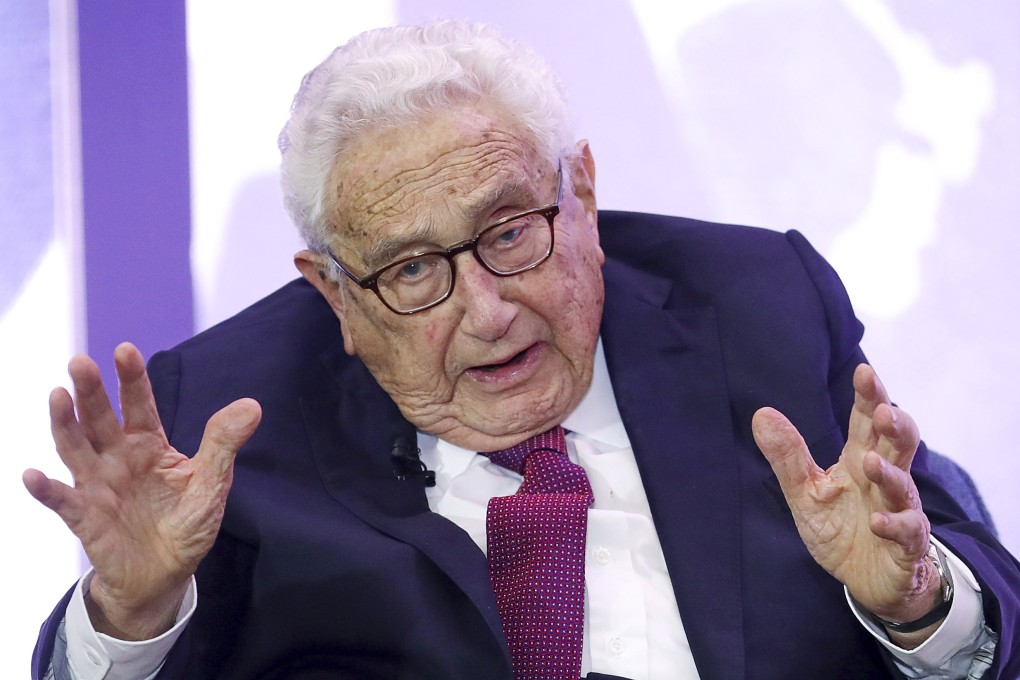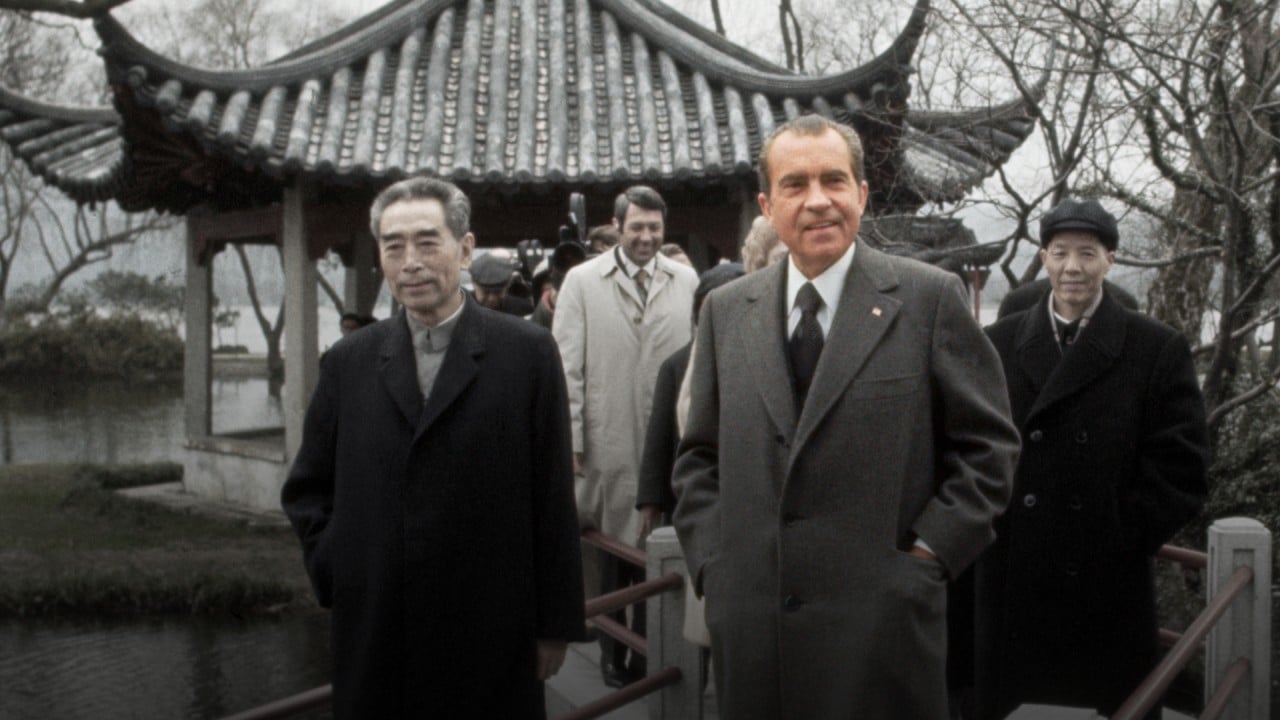Henry Kissinger warns against ‘endless confrontation’ with China
- The former US secretary of state says recent administrations in Washington have been too influenced by domestic policies
- Flexibility of Richard Nixon, who reopened US-China ties in the 1970s, needed in today’s geopolitics, the elder statesman said

The man who helped re-establish US-China ties in the 1970s said President Joe Biden should be wary of letting domestic politics interfere with “the importance of understanding the permanence of China”.
“Biden and previous administrations have been too much influenced by the domestic aspects of the view of China,” said Kissinger, 99, in an interview on Tuesday in New York with Bloomberg News editor-in-chief John Micklethwait.
“It is, of course, important to prevent Chinese or any other country’s hegemony [but] that is not something that can be achieved by endless confrontations,” he said.
Geopolitics and great-power relations are a central theme of Kissinger’s new book Leadership: Six Studies in World Strategy that focuses on six key leaders: Germany’s Konrad Adenauer, France’s Charles de Gaulle, Nixon, Egypt’s Anwar Sadat, British prime minister Margaret Thatcher and Singapore’s influential first prime minister Lee Kuan Yew.

